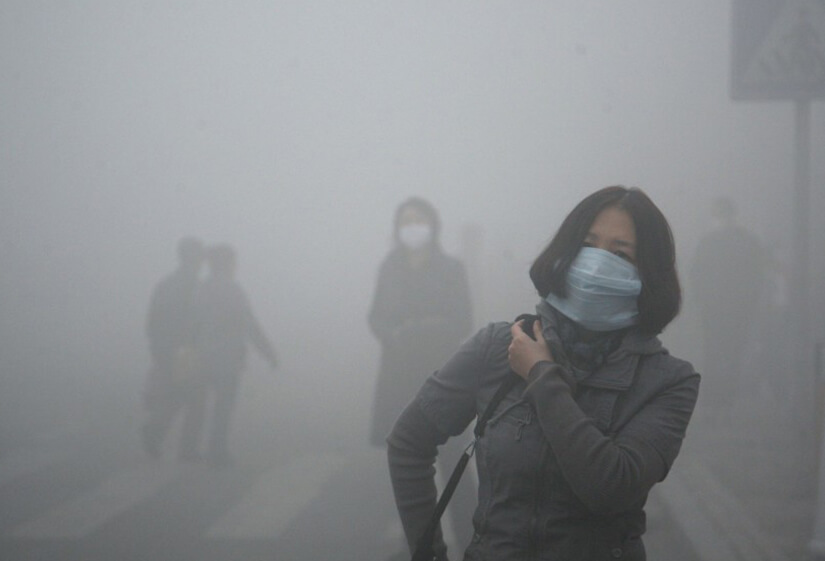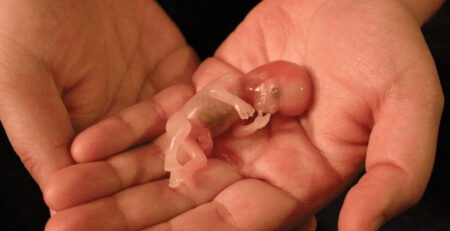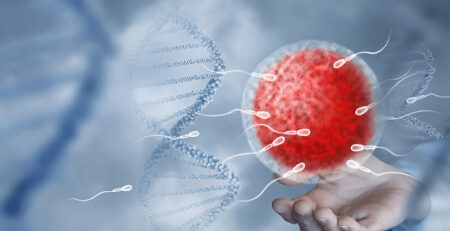How Pollution Affects Male and Female Fertility?
We all are aware that pollution levels are rising by the day in Delhi and other metro cities in India. Hidden in that air are dangerous pollutants—PM2.5, nitrogen dioxide, and toxic chemicals—that could silently harm your health, including your ability to have children. Alarming, right?
Cities like Delhi, which regularly tops global air pollution charts, are hotspots for these harmful toxins. The smog-filled skies aren’t just a visible problem; they carry invisible threats that could affect your chances of starting or growing your family.
Let’s explore the effect of pollution on fertility in both men and women.
The Invisible Threat: Air Pollution and Reproductive Health
Air pollution isn’t just an environmental issue; it’s a personal health crisis. Studies show that prolonged exposure to polluted air can lead to hormonal imbalances, reduced sperm quality, and compromised ovarian function.
This isn’t just speculation—it’s backed by hard science. Researchers have identified a direct correlation between air pollution and infertility rates. For example, urban areas with high levels of pollutants report significantly lower fertility rates compared to rural regions with cleaner air.
How Pollution Affects Male Fertility?
Air pollution and male fertility are intricately linked. Pollutants, especially heavy metals and particulate matter, can enter the bloodstream and disrupt normal testicular function. Here’s what happens:
- Sperm Quality Declines
Exposure to PM2.5 and NO2 reduces sperm motility (how well sperm swim) and morphology (the shape of sperm), directly impacting the ability to conceive. - Hormonal Disruption
Pollutants act as endocrine disruptors, altering testosterone levels and impairing sperm production. - Oxidative Stress
Pollutants like lead and cadmium trigger oxidative stress in the body, damaging sperm DNA. Damaged sperm DNA not only reduces fertility but also increases the risk of miscarriage if conception occurs. - Decreased Sperm Count
Urban pollution has been associated with a decline in sperm count over the last few decades, raising alarms for reproductive health globally.

The Female Perspective: Pollution and Fertility in Women
Pollution-related infertility isn’t just a male issue. Female fertility is equally vulnerable to the harmful effects of air pollution and environmental toxins. Here’s how:
- Hormonal Imbalances
Pollutants interfere with the endocrine system, disrupting ovulation and menstrual cycles. This makes it harder for women to conceive naturally. - Egg Quality Degradation
Research shows that exposure to pollutants, especially fine particulate matter, affects the quality of eggs. Poor-quality eggs reduce the chances of successful fertilization and implantation. - Complications in IVF
For women undergoing IVF treatments, living in areas with high pollution levels can decrease success rates. Pollutants like PM10 are known to lower the chances of achieving a live birth. - Increased Risk of Miscarriage
Environmental toxins like dioxins and phthalates can lead to pregnancy complications, including miscarriages and preterm births.
Environmental Toxins: A Double-Edged Sword
It’s not just air pollution—your environment is loaded with toxins affecting fertility. Everyday pollutants found in plastics, cosmetics, and even household cleaners contain chemicals like phthalates and bisphenol A (BPA). These pollutants mimic hormones, throwing off the delicate balance necessary for reproduction.
Urban Pollution and Reproductive Health: Why It Matters
Cities might offer better career opportunities and a vibrant lifestyle, but urban pollution comes with a price. Fertility decline due to pollution is becoming increasingly common in densely populated areas. For couples struggling with infertility, environmental factors might be the hidden roadblock.
Fighting Back: Steps You Can Take
While you can’t escape pollution completely, you can reduce its impact on your fertility:
- Air Purifiers: Invest in a good-quality air purifier, especially for your bedroom, where you spend most of your time.
- Diet and Supplements: Antioxidants like Vitamin C and E combat oxidative stress caused by pollutants.
- Avoid Plastics: Reduce exposure to BPA and phthalates by avoiding single-use plastics and opting for glass or stainless steel alternatives.
- Detox Your Home: Switch to eco-friendly cleaning products and cosmetics free from harmful chemicals.
Hope for Fertility Amid Pollution
Despite the grim scenario, advances in reproductive medicine are offering hope. Technologies like Intracytoplasmic Sperm Injection (ICSI) and Preimplantation Genetic Testing (PGT) can help bypass some of the fertility issues caused by pollution. However, prevention remains key. Understanding how pollution affects fertility and making conscious lifestyle changes can significantly improve reproductive health.

A Helping Hand for Your Fertility Journey
Pollution’s impact on fertility is undeniable, but you don’t have to face it alone. If you’re concerned about your reproductive health, consider consulting an expert. Dr. Rhythm Gupta, a renowned IVF specialist in Delhi, specializes in addressing environmental and lifestyle factors affecting fertility. Whether it’s evaluating your fertility potential or exploring advanced treatment options, Dr. Gupta offers personalized care tailored to your needs.
Take the first step toward parenthood by booking a consultation today. Your journey to a healthier, happier family starts here.












